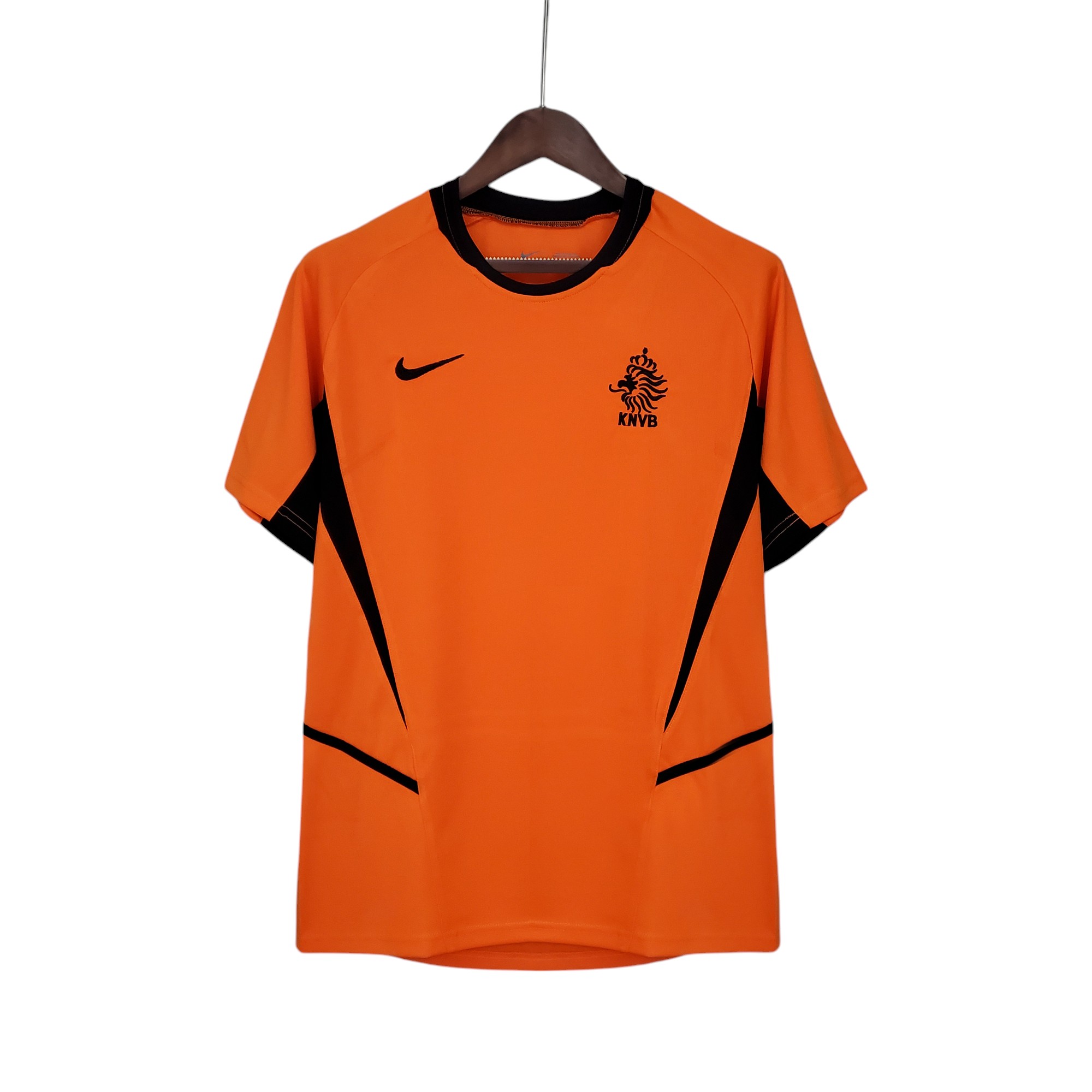
Netherlands Holland national football team Home 2002 Retro Classic Vintage Soccer Calcio Fútbol Fußball Shirt Jersey Camiseta Malliot Maglia Trikot BNWT
$86.99$49.99
The year 2002 was a notable one for the Netherlands national football team, commonly referred to as 'Holland' in the context of their rich football heritage. While the team did not have a successful campaign in the 2002 FIFA World Cup held in South Korea and Japan, the events surrounding that year remain significant in the broader narrative of Dutch football. In the lead-up to the tournament, the Netherlands was considered a formidable side with a blend of experienced players and emerging talents. Coach Louis van Gaal was at the helm, aiming to improve upon prior disappointments, including a failure to qualify for the previous World Cup in 1998, where they finished fourth. Expectations were cautiously optimistic as the squad boasted several key players who had proven themselves in major European leagues. The qualifiers for the 2002 FIFA World Cup were challenging but ultimately successful for the Dutch team. They topped their qualifying group, which included teams like Ireland and Portugal, showcasing their tactical prowess and individual skills. Players like Ruud van Nistelrooy, a prolific striker at Manchester United, and midfield maestros such as Edgar Davids and Phillip Cocu were pivotal in securing their place on the global stage. However, things took a turn for the worse as the tournament approached. The Dutch squad was struck with injury woes and internal discord, which affected their preparations. Key players were either sidelined or not in peak form, leading to a less cohesive team dynamic than anticipated. In the World Cup itself, the Netherlands was drawn into Group D alongside Argentina, Cameroon, and Sweden. The opening match against Sweden ended in a disappointing 1-1 draw, which already raised concerns about the team's competitiveness. In the subsequent match against Argentina, they faced a formidable opponent, resulting in another draw, but also highlighting the lack of finishing ability that plagued them throughout the tournament. The final group stage match against Cameroon was crucial, but the Dutch team could not secure the victory needed to progress to the knockout stages. Ultimately, this culminated in an early exit from the tournament, with a bittersweet sense of what might have been had injuries and form not disrupted their campaign. The disappointment resonated deeply with supporters who had hoped for a resurgence of the Flying Dutchmen, a moniker that pays homage to the team's iconic playing style and rich history of success. Post-World Cup, the Dutch football federation began a period of reflection and re-evaluation following the disappointing tournament. The 2002 World Cup marked a pivotal point in the transition of the national team, as the management sought to revitalize their football philosophy, focusing on youth development and a more dynamic playing style for future competitions. In the years that followed, the Netherlands national football team gradually rebuilt itself, ultimately embracing a new generation of players who would later achieve significant success, including a run to the World Cup final in 2010 and a remarkable performance in the UEFA European Championships. Though the 2002 World Cup was a challenge, it played an essential role in shaping the team's future, leading to substantial changes that laid the groundwork for a resurgence in Dutch football. This period serves as a reminder of the cyclical nature of sports, where moments of disappointment can sow the seeds for subsequent achievement.
🌍 Worldwide shipping is available!
This item will ship within 3 business days. Please proceed to checkout for shipping options and additional transit times.
- Cool wash
- Do not tumble dry
- Do not bleach
- Do not use fabric softener
Get in touch
© 2024. All rights reserved.
